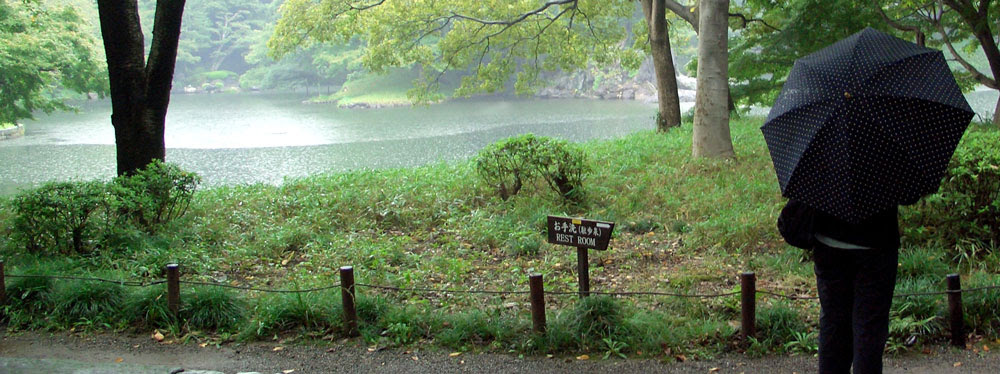Reader's Room: The View From Above
Reader's Room features the week's most thought-provoking speculative fiction and nonfiction. This week I talk about how astronauts see Earth, when and why to quit something in the middle, and Alistair Reynold's latest.
Show links:
- Jack Fisher's Tweet, wondering, from space.
- Alistair Reynolds' The Iron Tactician
- (Previous stories in this world are available in Zima Blue and/or The New Space Opera)
- Links
- Locus Award Finalists.
- Charles Stross's Atrocity Archives, on sale this week.
- Quantum Computing For The Mildly Curious.
Reader's Room: Positive Influences
Reader's Room ponders the week's most thought-provoking speculative fiction and nonfiction. This week we talk about the influence that science fiction has on science.
Show links:
- H. G. Wells's The World Set Free
- Astro Boy (AKA Mighty Atom)
- Tricorder X Prize
- Linkdump:
- Vernor Vinge's Fire Upon The Deep free this month.
- When an AI anticipates itself (video)
- Autonomous Robot Colonoscopies text
Reader's Room: Another Body
Reader's Room ponders the week's most thought-provoking speculative fiction and nonfiction. This week I share a story—a memoir, really, since it's true—about waking up in another body.
Linkdump:
- Kate Lechler's The Hulder’s Husband Says Don’t Flash fiction.
- The World's First nanocar race
- Japanese researchers 3D print scaffold-free ‘human mini-liver’
I'm Reading For You This Friday At the Writer's Block
 This Friday (April 14th) the Writer's Block is holding their monthly EXPO, where local authors come and read for you. I'll be reading along with Geoff Carter, James Collins, Megan Edwards, and Sarah Haak, who are mighty fine people to share a stage with. I'll be reading something new, so if you're in town, come by and offer me cheers and jeers where appropriate. The readings are short and varied. I guarantee you won't get bored.
This Friday (April 14th) the Writer's Block is holding their monthly EXPO, where local authors come and read for you. I'll be reading along with Geoff Carter, James Collins, Megan Edwards, and Sarah Haak, who are mighty fine people to share a stage with. I'll be reading something new, so if you're in town, come by and offer me cheers and jeers where appropriate. The readings are short and varied. I guarantee you won't get bored.
It's free, open to the public. (And there's usually wine, because Drew and Scott over at the Writer's Block are good people.) Location, time and more information.
When The Rains Come
This originally appeared as part of a past Reader's Room newsletter. Sign up if you'd like more things like this, as well as weekly reading recommendations.
If you set (part of) a novel in Singapore and you have the slightest concern with being realistic, you will think about rain. It rains one day out of every two there. And where there is rain and people, there will be umbrellas. For most of my life, I considered umbrellas to be temperamental devices that sulked in the back of closets. When they did see the (dreary) light of day, they were just barely worth the trouble.
Then I lived in Tokyo, where it rains one day in every three, on average. Everyone walks, so everyone spends some time under the sky. In Tokyo, umbrellas are more than a necessary accessory, they were a part of the culture. People form relationships with umbrellas, there was a whole infrastructure to support the umbrella-carrying lifestyle. Many business entrances had what I thought of as "umbrella condom machines": Little kiosks that would, with one smooth motion, sheathe your wet umbrella safely in a plastic bag. (I've only ever seen one of these in the US and no one used it because one knew what it was or how it worked. Here's a short video for the curious.) Fancy stores might have a uniformed and gloved person to bag your umbrella for you. (Or, if the store ran out of bags for their machines, an employee might manually recycles the bags, removing them from departing customer's umbrellas, and applying them for an incoming customer.) Convenience stores lived up to their name with big umbrella stands near the door, for parking umbrellas for a damp minute. (Outright umbrella theft was rare, but sometimes people would accidentally grab a similar umbrella from the communal stand. It was sort of a "leave an umbrella, take an umbrella" system.) A few places had self-service umbrella lock-ups. My favorite bar would valet them, taking then when you entered, parking them in the back room, and returning them to you when you left. (And, if it started raining while you were there and you hadn't thought to bring an umbrella, they might give you one from their lost-and-found.) My time in Tokyo dramatically expanded my life experience with umbrellas.
Fancy, multiply-collapsible, highly compact umbrellas were relatively rare. Almost everyone carried a traditional full-length one. The infrastructure was built around them. Compact ones don't work in the wrap machines, and they end up at the bottom of a damp pile in the umbrella stands.
If you damaged your umbrella, you could go to the craft store and buy spare parts. Under the train tracks in Shinjuku, a man collected discarded, broken umbrellas, fixed them, and resold them to pedestrians. Parasols were also common, but distinct from umbrellas. They're not water proof, and often made of lace.

I was returning to the US on a rainy day, and had some time to kill after checking out of my place, so I stopped at Mos Burger* (a Japanese fast food chain) to grab a bite before boarding my train to the airport. I carried an umbrella that I scavenged from the recycle room in my apartment-hotel. The staff would separate out the lightly used left-behind umbrellas and stack them in a corner for scavengers like me, but I had forgotten to leave it when I set out that morning. The rain had stopped and I didn't want to bring a full-length umbrella on the airplane. I wouldn't need it on the train to the airport. (I always worried about poking people with them.) So I decided to leave it behind at the Mos Burger. The mechanisms in place would find it to a good home.
I set out to the nearby train station, guiding my suitcase through the sparse sidewalk traffic, burdened by the rhythmic sound of its wheels on the brick sidewalk, but lighter by one umbrella. Halfway to the station, I heard quick footsteps behind, and the voice of a woman: "Sumimasen—Ekusukyusu mi!" she called. (That is "Excuse me" in Japanese and heavily accented English). I was the only obvious native English speaker on the street, so I stopped and turned. A young woman was running to catch up. She wore a forest green uniform with a short, wide tie, and a jaunty beret with a little Mos burger pin in the front. In one fist was clutched my umbrella. She stopped in front of me, just slightly out of breath, smiling and eyes bright for having caught me in time. "I have your umbrella," she said in Japanese, giving a little bow and presenting it to me with both hands. Not, "You forgot it." There was no blame. Just, "I have it."
What could I do? The umbrella had followed the mechanisms in place, and found a home. I took it back, also with both hands. I thanked her as we exchanged bows. We went our separate ways. Her to the shop up the block, me to a country an ocean away, where umbrellas sulked, unappreciated, in the backs of our closets.
* The great thing about Mos Burger was that if you ordered french fries, they always snuck an onion ring in, like it had just slipped in by accident. If you ordered the rings, a few fries would sneak in. Every time.
 A word on AI-generated content.
A word on AI-generated content.